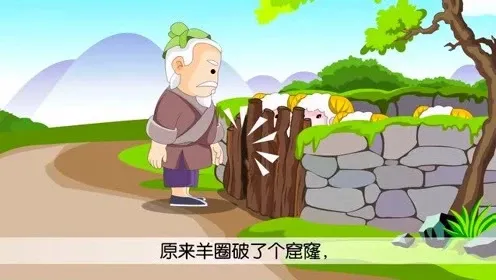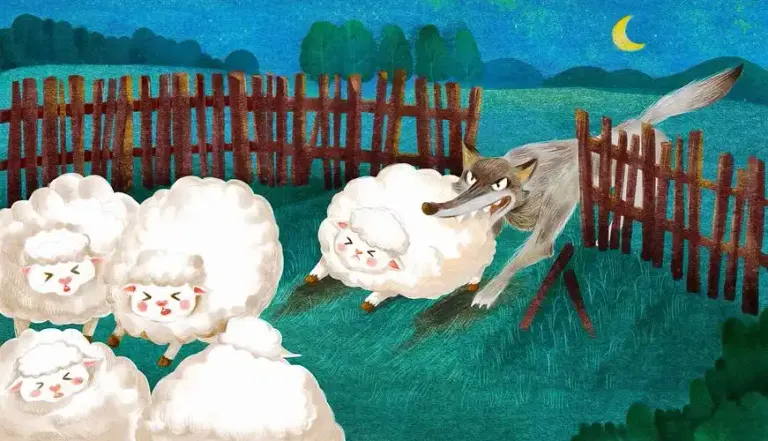
During the Warring States Period, a man in the State of Chu raised several sheep. One morning, he found one sheep was missing. It turned out that a hole was dug in his sheepfold by a wolf, and it is the the wolf that stole the sheep. The neighbors advised him to quickly repair the sheepfold, but the man said, "Since one sheep has been taken away by wolves, what's the point of repairing the sheepfold?" But the next morning, the man found another sheep missing and began to regret not listening to his neighbors' advice. He started to block the hole in the sheepfold and the sheep were never missing again.
It's not too late to repair the sheepfold after the sheep were missing. This idiom tells people that when problems emerge, they need to be corrected in a timely manner in order to avoid further development of the problems and stop losses in a timely manner.
But personally, I feel that this idiom has become an excuse for some people. They only think about solving problems when they arise. Why don't they pay attention to details and take preventive measures in their daily lives? If the man of Chu paid attention to his sheepfold, his sheepfold would not be pierced by wolves, and the sheep would not be lost. But we often neglect and look indifferent, always thinking that the car will find its way round the hill when it gets there-things will eventually sort themselves out, isn't it? It's never too late to mend the fold.
So, we must always remain vigilant, be careful and meticulous, and nip problems in the bud.
战国时期,有个楚国人养了几只羊,有一天早上他发现少了一只羊。原来是他的羊圈被狼掏了一个窟窿,狼把羊偷走了。邻居们劝告他赶紧把羊圈修一修,可这个人说:“既然羊都被狼叼走了,修羊圈还有什么意义吗?”可是第二天早上,这个人又发现少了一只羊,他开始后悔没有听邻居们的建议。他便动手把羊圈的窟窿堵上,从此便再没有丢失羊。
亡羊补牢,意思是说羊丢了再去修补羊圈,还不算晚。这个成语告诉人们,发现了问题要及时改正,才能避免问题的进一步发展,及时止损。
可我个人感觉,这个成语成为了有些人的借口,凡事等到出现了问题才会想起来去解决,为何平日里不注重细节,防微杜渐呢?如果那个楚国人平日里注意观察自己的羊圈,他的羊圈就不会被狼掏个窟窿,自然羊也就不会丢失了。可我们常常疏忽大意,抱着一副满不在乎的样子,总觉得车到山前必有路,不是吗——亡羊补牢,犹未晚矣。
所以,我们要时刻保持警惕,细心仔细,把问题消灭在萌芽状态。
